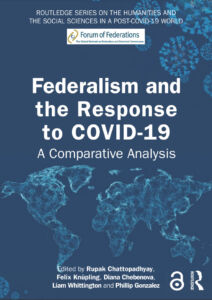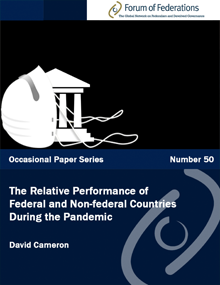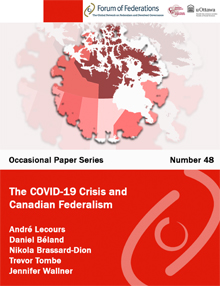
The COVID-19 pandemic has affected the entire world, including over 40% of the world population, which resides in federal or devolved countries. As countries have had to respond to the multitude of challenges caused by the pandemic, the effectiveness of public policy has been mixed in different countries. Given that federations are predominantly large or diverse responding to the public health and economic crisis brought on by the pandemic has required policy interventions at both national and subnational levels of governments.
While in most federal countries, constitutional powers to deal with national disasters or emergencies reside with the national government, service delivery is usually the remit of constituent units (including local governments). This reality has necessitated unprecedented levels of intergovernmental interaction and coordination between all federal entities. Federations are uniquely suited to grapple with the complexity and uncertainty of pandemics by providing policymakers with opportunities to: develop solutions tailored to different scales and circumstances, experiment with innovative policy measures, and engender policy learning and convergence over time. The pandemic has put a magnifying glass on the effectiveness of federal states to manage the crisis versus unitary systems and the roles and responsibilities of various orders of government.




